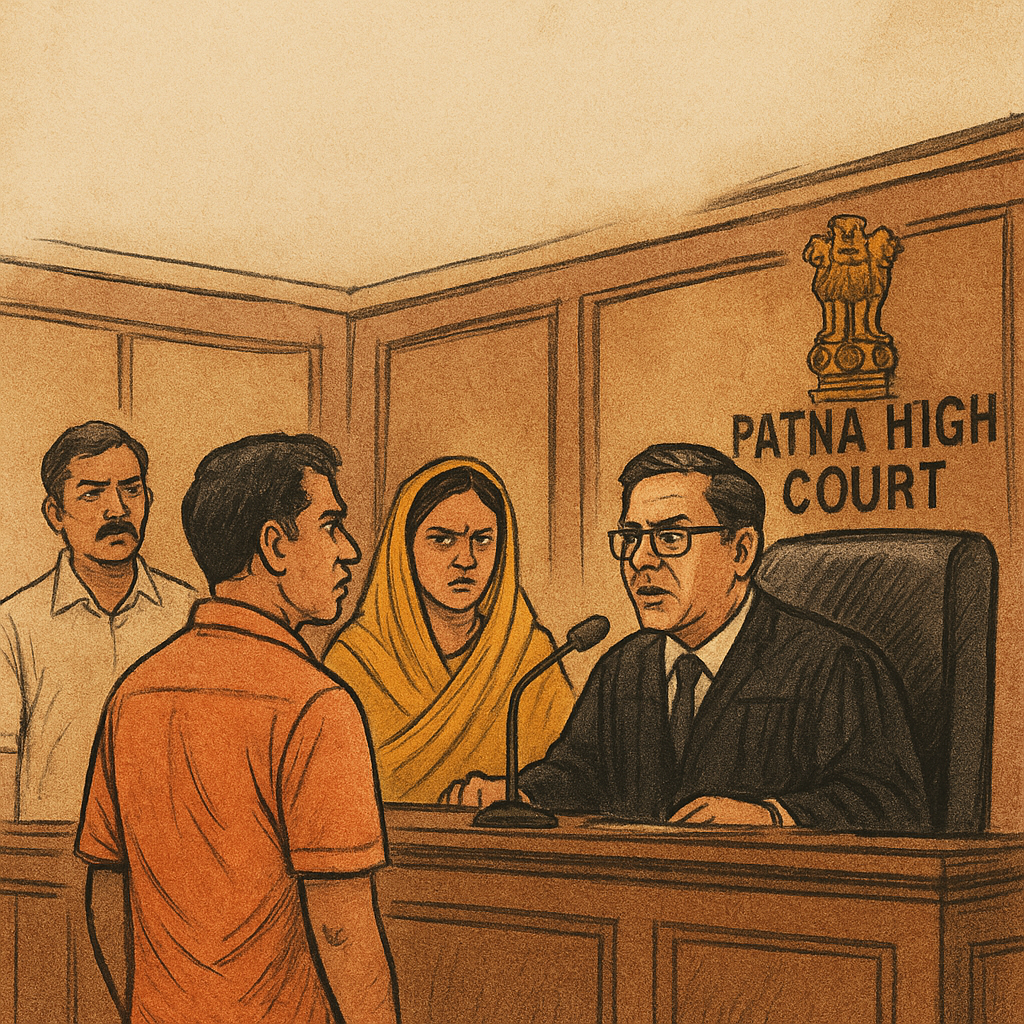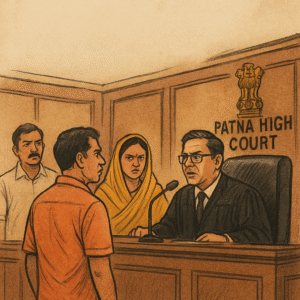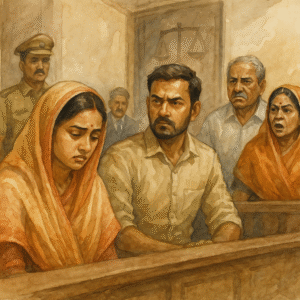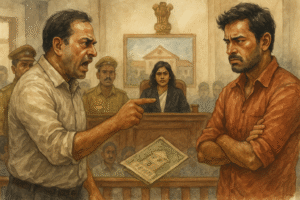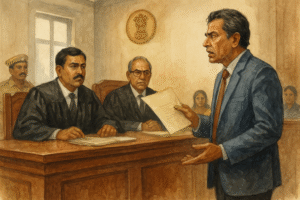Simplified Explanation of the Judgment
In a significant ruling on property disputes and criminal allegations, the Patna High Court quashed proceedings against five individuals accused of cheating and forgery related to a land transaction. The petitioners had challenged the order of cognizance passed by the Sub-Divisional Judicial Magistrate, Dalsing Sarai, which initiated proceedings under Sections 420, 467, and 468 of the Indian Penal Code.
The controversy arose when the complainant claimed that she had already purchased a piece of land through a registered sale deed on 27.05.2013. Later, one of the accused, Sukhdev Sharma, executed another registered sale deed for the same land in favor of co-accused Dhanpat Kumar on 28.12.2013. The complainant alleged that the second sale deed was fraudulent and aimed at cheating her, involving forgery of ownership records.
Other accused persons were either witnesses or scribes of the disputed sale deed.
The petitioners, in their defense, provided a genealogical table showing that the land in question was part of ancestral property. They contended that Sukhdev Sharma (son of Saukhi Sharma) and the original vendors (sons of Anup Lal Sharma) were from the same family and had a legitimate claim to the land. Even if ownership was disputed, the transaction did not amount to forgery or cheating in the criminal sense.
The High Court referred to the Supreme Court decision in Md. Ibrahim v. State of Bihar [(2009) 4 PLJR (SC) 99], which clarified what constitutes a false document or forgery. The core principle established in that case was that merely executing a sale deed over land, even if one does not own it, does not automatically qualify as making a “false document” unless there is impersonation or misrepresentation of authority.
The court emphasized that in this case:
- There was no impersonation or false authority claimed in executing the second sale deed.
- The complainant was not the purchaser in the second transaction and, therefore, not the person deceived.
- No elements of deception, misrepresentation, or inducement were directed toward the complainant.
It further noted that if anyone had a grievance about being defrauded, it would be Dhanpat Kumar—the buyer in the second transaction—not the complainant. But even he had not filed any complaint.
Considering the legal principles and the factual background, the Court held that no criminal offence was made out against the petitioners. Therefore, the order taking cognizance dated 28.01.2015 was set aside, and the criminal case against all five petitioners was quashed.
Significance or Implication of the Judgment
This ruling reinforces an essential legal safeguard against misuse of criminal law in civil property disputes. The High Court has clearly demarcated the boundary between civil wrongs and criminal offences. A mere allegation of ownership conflict or mistaken sale is not sufficient to initiate criminal proceedings for forgery or cheating.
The judgment also protects innocent participants in transactions—like witnesses and scribes—from being unnecessarily dragged into criminal litigation. It promotes responsible legal scrutiny before criminalizing what may be a bona fide property claim or dispute.
This decision is particularly important for rural landowners and property litigants, where familial and ancestral land records are often a cause of overlapping claims. The Court’s insistence on mens rea (criminal intent) and actual deception as prerequisites for criminal prosecution will likely discourage frivolous or retaliatory FIRs in property disputes.
Legal Issue(s) Decided and the Court’s Decision
- Whether execution of a second sale deed over disputed land amounts to forgery or cheating?
- Court’s Decision: No. There was no impersonation or false authority involved.
- Can a person unrelated to the second transaction (the complainant) claim to be deceived?
- Court’s Decision: No. The complainant was not the party deceived; hence no offence is made out.
- Are witnesses or scribes to a sale deed liable in a land fraud complaint?
- Court’s Decision: No. Mere participation as a scribe or witness does not imply criminal liability unless active deceit is proven.
- When is a criminal case under Sections 420, 467, and 468 of IPC sustainable in a property dispute?
- Court’s Decision: Only when there is proof of false document creation, impersonation, or active deceit with intent to defraud.
Judgments Referred by Parties
- Md. Ibrahim & Others v. State of Bihar & Another, 2009 (4) PLJR (SC) 99
Case Title
Dhanpat Kumar & Ors. v. State of Bihar & Anr.
Case Number
Criminal Miscellaneous No. 13347 of 2015
Citation(s)
2020 (1) PLJR 470
Coram and Names of Judges
Hon’ble Mr. Justice Birendra Kumar
Names of Advocates and who they appeared for
- Mr. Alok Kumar Sinha, Advocate – for the petitioners
- Mr. Shyam Kumar Singh, A.P.P. – for the State
Link to Judgment
https://patnahighcourt.gov.in/viewjudgment/NiMxMzM0NyMyMDE1IzEjTg==-lpQd–ak1–rm8fI8=
If you found this explanation helpful and wish to stay informed about how legal developments may affect your rights in Bihar, you may consider following Samvida Law Associates for more updates.


